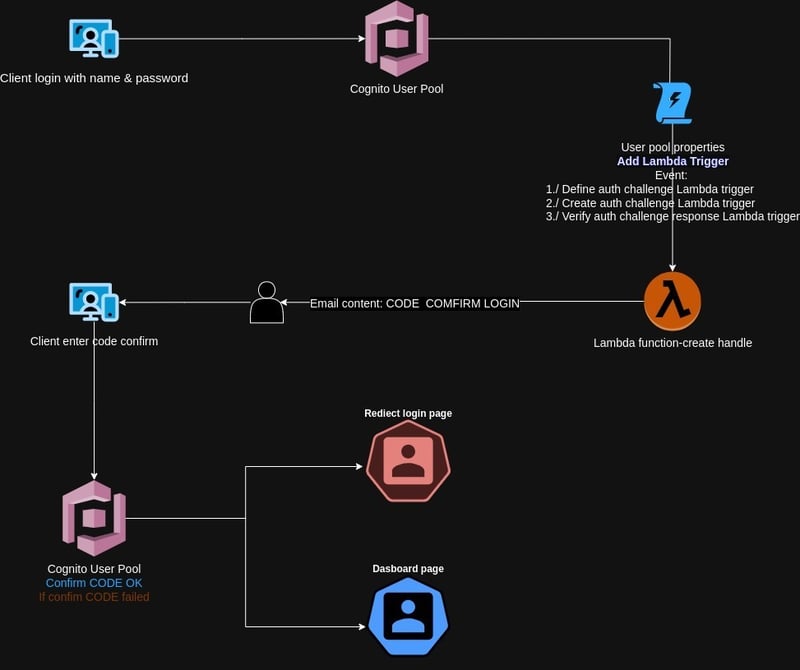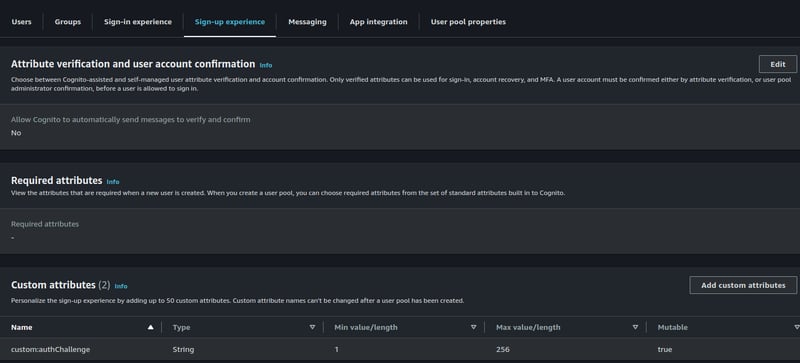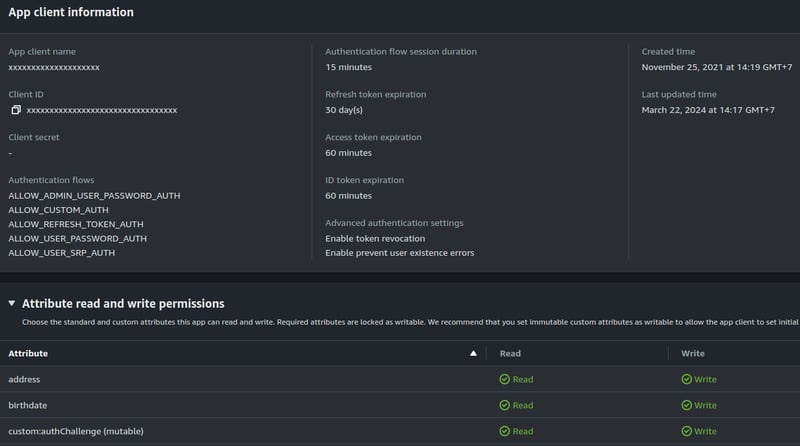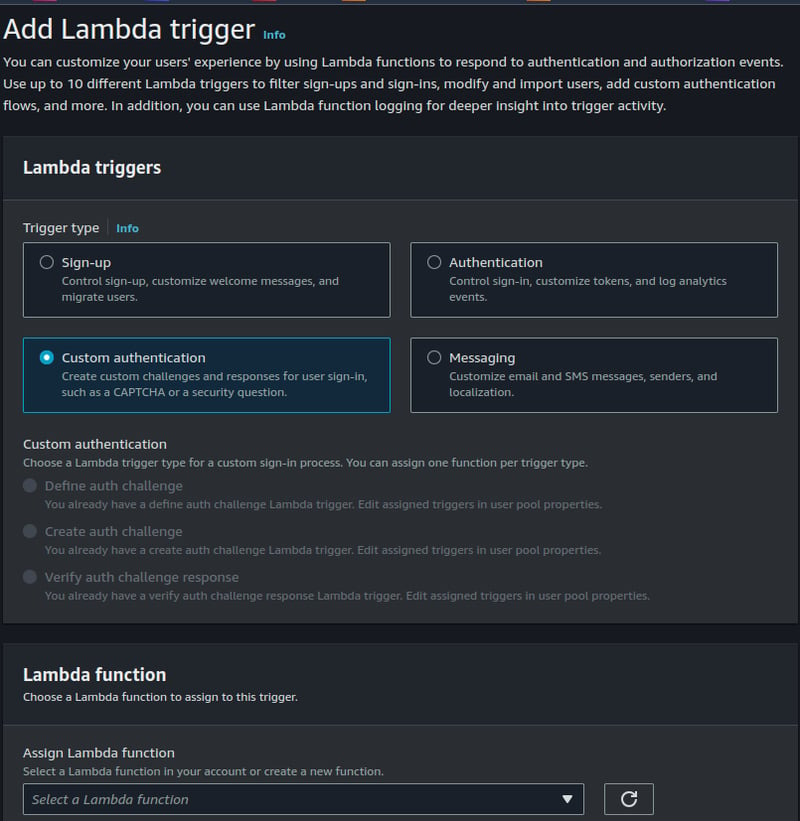Hi every one!!!
Emotional conversation between boss and employee
Boss: Do you know about Cognito?
Employee: I know a lot about it so what do you need?
Boss: I need to develop more on the login page about 2fa confirmation codes via email & email only, customers need it urgently.
Employee: I think Cognito has all the support so no need to worry. I talked to my boss about it and assured me that I could do everything.
Boss: Does it take a long time?
Employee: I'm a master at this so it'll be quick.
So then he discovered the flow login feature only supports mfa with TOTP & SMS
OMGGGGGGG ●█▀█▄ ●█▀█▄ ●█▀█▄ ●█▀█▄
Please read this article it will help you \ʕ •ᴥ•ʔ/
Prepare:
Cognito create user pool
Create 3 lambda function: 2faDefine.js, 2faCreate.js, 2faVerify.js
Cognito user pool
Note: User pool ID & App client ID
The newly created user has confirmation status is Force change password, now you need to run the script below to update confirmation status from Force change password to Confirmed.
aws cognito-idp admin-set-user-password --user-pool-id {user pool ID} --username {username} --password {password} --permanent
Add custom attributes authChallenge, so after saving it will automatically add the prefix custom:, ouput custom:authChallenge.
This custom attribute contains a confirmation code and expiration time information when the end user submits a login.
You find App client list, so click Client your app.
This custom attribute custom:authChallenge must have read and write permissions.
Option Authentication flow session duration has a value equal to the expiration time of the confirm-code.
Option Authentication flows has a value ALLOW_ADMIN_USER_PASSWORD_AUTH, ALLOW_CUSTOM_AUTH, ALLOW_REFRESH_TOKEN_AUTH, ALLOW_USER_PASSWORD_AUTH, ALLOW_USER_SRP_AUTH.
Add Lambda trigger with trigger type
Custom authentication
Custom authentication
Choose Define auth challenge mapping to lambda function 2faDefine.
Choose Create auth challenge mapping to lambda function 2faCreate.
Choose Verify auth challenge response mapping to lambda function 2faVerify.
Lambda deploy with code
1./ Function 2faDefine
https://bitbucket.org/main-28/cognito-sign-in-confirm-code-via-email/src/main/2faDefine.js
2./ Function 2faCreate
https://bitbucket.org/main-28/cognito-sign-in-confirm-code-via-email/src/main/2faCreate.js
Tab Configuration > General configuration
Change value of the option timeout up 5 minute because nodemailer send email not working.
Tab Configuration > Environment variables
CUSTOM_ATTRIBUTES = custom:authChallenge
EMAIL_FROM_ADDRESS = [email protected]
USER_POOL_ID = xxxxxxxxx
3./ Function 2faVerify
https://bitbucket.org/main-28/cognito-sign-in-confirm-code-via-email/src/main/2faVerify.js
Tab Configuration > Environment variables
CONFIRM_CODE_TIMEOUT = 15
CUSTOM_ATTRIBUTES = custom:authChallenge
Frontend Angular
Libary
[amazon-cognito-identity-js](https://www.npmjs.com/package/amazon-cognito-identity-js),[angular-code-input](https://www.npmjs.com/package/angular-code-input)Git: https://bitbucket.org/main-28/cognito-sign-in-confirm-code-via-email/src/main/login.component.ts
Form login: when the end user clicks submit, it will call the function onSubmitLogin.
Form confirm code: when the end user enters the confirm-code, it will call the function onCodeCompleted.
Note:
If you want to refactor code, make sure the code example works first.
Please comment any issues you encounter and I will try to answer you.
 Psst! Do you accept cookies?
Psst! Do you accept cookies?





What's your thoughts?
Please Register or Login to your account to be able to submit your comment.